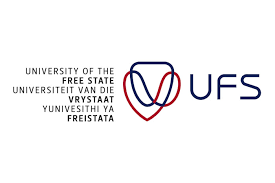University of the Free State co-conducts first African conference
The University of the Free State (UFS), in partnership with Sweden’s Karolinska Institutet, recently hosted the first CCHFV Africa Conference, at which experts from 16 countries – including 12 African countries – discussed Crimean-Congo haemorrhagic fever virus (CCHFV).
The conference was held in early May in Cape Town and included attendees from Benin, Burkina Faso, Cameroon, Central African Republic, France, Gabon, Kenya, Mozambique, Senegal, South Africa, Sweden, Tanzania, Tunisia, Turkey, Uganda, and the United States.
Keynote lectures were presented by experts in the field from South Africa, Sweden, the USA, and Turkey. Representatives of the USA’s Defence Threat Reduction Agency (DTRA) and the European Research Infrastructure on Highly Pathogenic Agents (ERINHA) also attended the meeting.
Prof Felicity Burt, an expert in arbovirology from the UFS’s Division of Virology in the Faculty of Health Sciences and the National Health Laboratory Service (NHLS), organised the conference in partnership with Prof Ali Mirazimi of the Karolinska Institutet, the Public Health Agency of Sweden, and the National Veterinary Institute in Sweden. Profs Burt and Mirazimi have collaborated for many years on the CCHF virus and conceived the idea to host a conference which would allow participants from low-resource countries in Africa to attend.
First of its kind
Prof Burt said the CCHFV Africa 2023 Conference was the first of its kind, and aimed to create a platform for African researchers to showcase their research while establishing contact and collaboration with colleagues to further preparedness for CCHFV outbreaks in Africa.
“We allowed for a total of 60 participants and were delighted with the enthusiastic response,” Prof Burt said. “We had a full house. The meeting would not have been possible without the support of the DTRA, who partnered with the UFS in supporting CCHF research and bio-surveillance efforts in South Africa, the region, and the African continent.”
Crimean-Congo haemorrhagic fever virus is a tick-borne zoonosis (disease which can be transmitted from animal to human) found in Africa, Asia, eastern and southern Europe, the Balkans, and the Middle East. The virus is listed as one of the priority pathogens for research and vaccine development by the World Health Organization (WHO) due to significant public health implications and the absence of effective treatment.
“The distribution of CCHFV correlates with that of the primary vector of the virus, ticks belonging to the genus Hyalomma,” Prof Burt added. “The distribution of these ticks has, in recent years, expanded to regions where conditions are favourable for the species to establish endemnicity. Hence there is growing concern that this virus has the potential to emerge and spread to new geographic regions.”
Cases detected annually in South Africa
Humans become infected with CCHFV via tick bites or from contact with infected blood or other livestock or human tissue. Human infection is usually characterised by febrile (high-fever) illness, which can progress to a haemorrhagic state with a fatal outcome.
Cases of CCHFV are detected annually in South Africa, with a fatality rate of approximately 24%. Although the number of cases that occur in South Africa is low, CCHFV infections are a significant public health concern due to the lack of specific treatment and risk to healthcare workers. Currently there is limited data available regarding the distribution and occurrence of cases in many other countries in Africa where the vector is known to occur.
Oral presentations from conference participants provided substantial evidence of the virus circulating in multiple countries, with potential to cause human infections.
“The presence of this virus emphasises the urgent need to build diagnostic and surveillance capacity for CCHFV and other arboviral disease with potential to cause outbreaks throughout Africa,” Prof Burt said.

